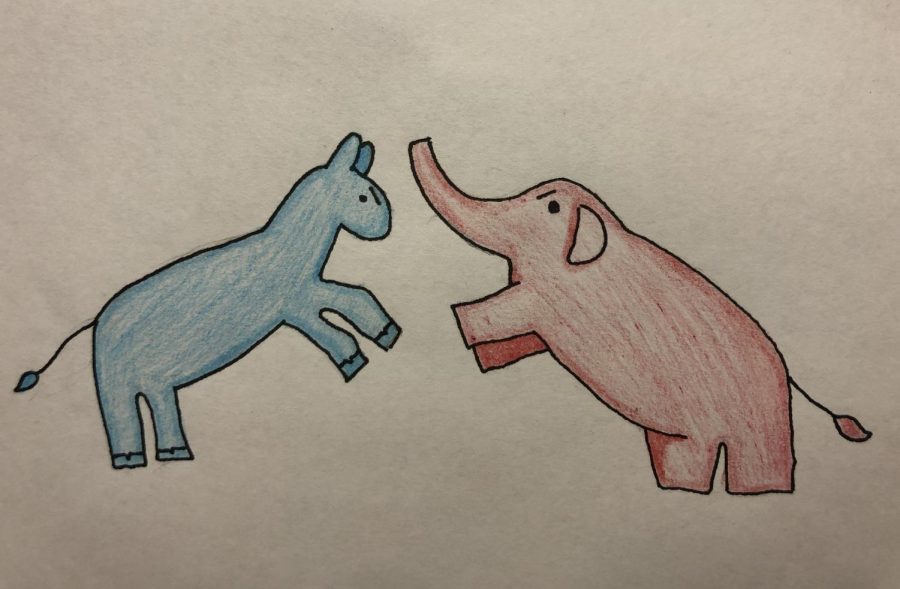Two Party Political System Poses Problems
Political tensions in the U.S. are heading toward a breaking point. Issues of climate change, police brutality, and racism have been made prominent, and restlessness is growing. To resolve these issues, Democrats and Republicans have dug opposing holes in the ground. They might shout criticism at each other, but no one is climbing out of their hole to negotiate. There is no compromise to be seen for miles, and this is because there is a serious lack of moderates. At least, that is the way it seems. I would argue that the cause of this lack of commonality is the two party system’s failure to represent the individual American’s values.
If you consider the numbers, it makes little sense that only two parties represent nearly 330 million individuals. The U.S. is considered a melting pot of cultures, and it has a wide range of ideologies that stem from around the world. Yet we have two parties to represent that. The U.K. has 11 political parties with representatives in Parliament; Germany has seven major political parties; and Canada has five. The collective population of the U.K., Germany, and Canada is 188 million people.
Few parties lead to few options, and few options lead to unhappiness and restriction, especially in the context of politics. Our current presidential candidates are a prime example of this. Neither of them are people who I would want to represent me, but what are my other viable options? Voter turnout in the U.S. is substantially lower than in other countries, so I’m obviously not the only person who feels this way about the candidates the parties are offering us.
Suppose there is an American that has both Republican and Democratic ideas. It’s hard to imagine, but this kind of person exists, and they do not have a place to belong. In picking a political party, they essentially lose representation of a portion of their ideas. That’s why America needs to do away with the current duopoly and install a multiparty system, one that actually represents the nuanced ideas of its population.
Third parties already exist, of course, but they might as well not. They hold no power and have little influence largely because of the stigma that is associated with voting for third parties. Because they already have few supporters, and elections are based on a winner-takes-all system, voting for a party that might actually represent what you value is seen as a wasted vote. It’s a vicious cycle for third parties. They have little support, so they get few votes. The consequences of a system like this leads to Republicans that have liberal ideals and Democrats that have socialist ideals, further blurring definitions of being a Republican or a Democrat.
So how do we go about breaking this cycle of pain? Well, the government could completely reform the voting system so that all parties get representation based on the percentage of the vote that they get. For example, the U.K. uses a system where candidates are numbered based on voters’ preferences. Those who get the net highest numbers get the most seats in Parliament. The problem with this is that it would take altering the Constitution, and that is unlikely to say the least. And even if it were much easier to alter the Constitution, reforming the voting system would mean that the national parties would give up a lot of their power. I find it highly unlikely that they would ever do that. Those in power aren’t going to just give it up willingly, even though we live in a democracy.
The only real and immediate solution that we have at our disposal is to vote for third parties and try to expand their influence if we think that they represent us. It seems unlikely for something like this to ever work, but it is better to pursue this than live with the alternative. I want to live in an America that has even a little bit of political coexistence. I do not want to be immediately judged based on the category that I am forced to fall under, and I hope that you feel this way too. Justin Amash of Michigan is a Libertarian who currently has a seat in Congress, so the task is not completely impossible.






